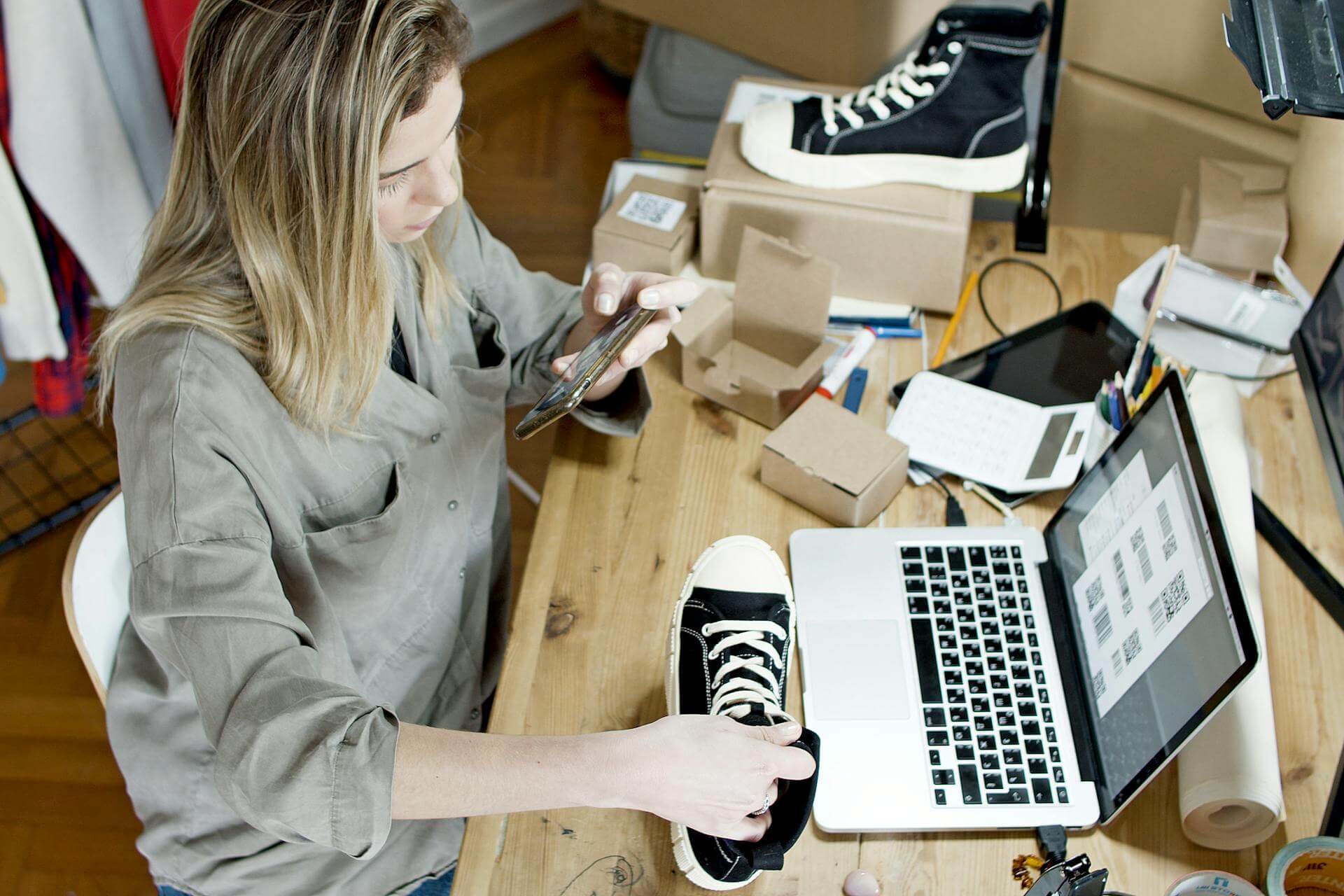With today’s shoppers craving more engaging experiences, videos are the perfect fuel for eCommerce sales.
Videos are no longer a nice-to-have, but rather a must-have for eCommerce brands.
Shopify brands, in particular, need compelling videos to showcase products, build trust, and convert visitors into buyers. And, AI-powered tools are making video marketing easier, faster, and more effective than ever before.
In this blog, we explore how Shopify brands can leverage AI to supercharge their video strategy.
What is video marketing
Using video content to promote a brand and its products with the ultimate goal of either attracting and engaging customers or driving sales is video marketing.
Video marketing is not confined to a platform or purpose, but serves as a strong driver of engagement, brand awareness, and sales across various digital touchpoints. For Shopify brands, this can include product demos, customer testimonials, social media ads, and more.
Videos help capture attention, build trust, and make online shopping more interactive, which in turn leads to higher conversions and brand loyalty.
Why choose video marketing for your Shopify store
Here’s why video marketing should be a key part of your eCommerce strategy and how it can help you drive more revenue:
Higher conversion rates
Videos are powerful and they can make a direct impact on your company’s bottom line. According to idomoo, consumers are over 2x more likely to buy from a brand that uses advanced video tech.
Videos can show the product in action and help customers visualize the product's usage. A product demo, a how-to guide, or an influencer review, all such video content helps reduce uncertainty and increases the likelihood of a purchase.
Improved customer trust
eCommerce basically is convenient with questionable trust, because customers cannot physically interact with the products before making a purchase. Videos help build that foundation of trust in customers.
A recent survey by wyzowl has revealed that 87% of shoppers were convinced to buy a product or service by watching a video. Authentic content like product demos, unboxings, and testimonials can build confidence in your store.
Better engagement on social media
Videos in social media generate 1200% more shares than text and images combined. Platforms like Instagram, TikTok, and YouTube prioritize video content, making it easier for Shopify brands to boost their visibility and reach new customers.
Carefully strategizing video content such as product teasers, unboxings, and influencer collaborations helps brands not only tap into viral trends to drive traffic to their stores but also helps improve sales.
Boost in SEO and traffic
Text-based content is not the sole qualifier for search engine ranking. In fact, websites with video content are 53 times more likely to rank on the first page of Google’s search results. Videos increase the time spent on a website, a major ranking factor for search engines.
Additionally, YouTube (the second-largest search engine), a video advertising platform, among many other video-sharing platforms offers another avenue for Shopify brands to attract potential customers through video search queries.
Reduced returns
There’s often a major gap between what customers expect from a product vs. the reality of the product received. Reportedly, 22% of product returns happen because the product turned out to be different from what was expected.
That’s a gap or clarification only videos can help solve. Video content gives a more accurate representation of a product, showing its size, features, and functionality in real-world scenarios. This reduces misunderstandings and sets the expectations correctly.
Types of video marketing formats
Here are some of the most effective types of video formats that Shopify brands can use to engage customers and boost sales:
1. Brand videos
If your goal is to build brand awareness, video marketing is a great avenue you can maximize. You can create brand videos that introduce customers to your business, mission, and values.
Such videos can create an emotional connection with your audience by showcasing your brand story or the people behind it. For example, when a sustainable fashion brand shares a behind-the-scenes video of its manufacturing process, it strengthens customer trust.
2. Live videos
Livestreaming does not have to be confined to creators and influencers. Brands can use this format for a range of activities like facilitating real-time interaction with customers through Q&As, showing product demos, or a walkthrough behind the scenes.
Platforms like Instagram Live and YouTube Live help brands engage audiences more authentically. One great example is streaming the process of making a cake or a candy brand streaming its candy-making process to build engagement.
3. Testimonial videos
Sure, video content encourages customers to convert and make purchases, but social proof in video format does even better. Customer testimonials add authenticity and influence purchasing decisions, more so in video format because they show real experiences.
Testimonial videos can be featured on product pages, ads, or social media. The more information and social proof you offer, the more confident buyers feel about their purchase like how Nike features athletes and everyday customers sharing their experiences.
4. Educational videos
Educational videos provide value to potential customers by teaching them something useful while subtly showcasing a brand’s products. Like, a sewing brand creating step-by-step tutorials on making clothes using its patterns.
These videos can be short-form tutorials, in-depth guides, or even full-length courses, depending on the target audience and industry. They serve as an excellent tool to drive organic traffic and build brand authority.
5. Product demo & unboxing videos
Product demos and unboxing videos showcase a product’s features, quality, and real-world use, helping customers make informed decisions. Demos highlight key functionalities and benefits while unboxing videos create excitement around new launches.
These videos build trust and boost purchase confidence by giving customers a transparent view of the product. They also increase engagement, especially when shared by influencers or customers on social media. For example, a quick demo of a newly launched software application.
6. Explainer videos
Explainer videos go beyond basic product demos by providing in-depth information about a product, service, or concept in an engaging and easy-to-understand way. For example, a hiking gear brand’s breakdown of the best boots for different terrains.
These videos are often used to simplify complex ideas, highlight key benefits, or answer common customer questions. They can be animated, live-action, or a mix of both, depending on the brand’s style and target audience.
7. Behind-the-scenes videos & vlogs
Behind-the-scenes (BTS) videos and vlogs give customers an exclusive look at a brand’s story, processes, and people. Unlike polished marketing videos, these are often raw and authentic, making them great for building trust and emotional connections with the audience.
Whether showcasing how a product is made, giving a tour of the office, or sharing a day in the life of the founder, BTS content helps humanize a brand and strengthen customer loyalty. Like, a slime brand sharing order-packing vlogs to engage its online community.
Ways to use AI for video marketing
Videos are powerful but time-consuming. Here’s how AI can enhance your video product process and strengthen your video strategy:
1. Automated product demo videos
Instead of manually creating product showcase videos, AI can transform images, descriptions, and user reviews into engaging demos. These videos highlight key features, benefits, and customer feedback, helping shoppers make informed decisions.
2. Personalized video ads
AI can read user data such as browsing history, past purchases, and preferences, and use the data to create tailored video ads. These dynamic ads ensure that customers see products relevant to their interests, leading to higher engagement and conversion rates.
3. AI-driven video editing
Editing videos manually can be time-consuming, but AI streamlines the process by automating tasks like trimming, background removal, color correction, and scene transitions. This allows Shopify brands to produce high-quality videos with minimal effort.
4. AI-powered voiceovers and subtitles
AI can generate realistic voiceovers directly from text, without the need for professional human narrators. It can also auto-generate subtitles in multiple languages, making videos more accessible to a global audience and improving engagement on social media.
5. Smart video recommendations
Just like how your favorite social media platform pushes video suggestions, AI can recommend relevant product videos to shoppers based on their browsing behavior and purchase history. This helps customers discover, explore, and purchase new products.
6. AI-generated social media content
AI tools can automatically create short, eye-catching clips optimized for platforms like Instagram, TikTok, and YouTube. From repurposing long-form content into bite-sized videos to generating trending captions, AI can help brands with all of their social media needs.
7. Automated A/B testing for video ads
AI can analyze performance data of different video elements like thumbnails, duration, CTAs, and ad copy to find what works best for your brand. This is often automated and the optimization can help you improve ad effectiveness and maximize your ROI.
8. Interactive and shoppable videos
AI-powered technology can create interactive videos where viewers can click and make a product purchase directly from the video. This creates a seamless shopping experience and reduces the steps between discovery and purchase.
9. AI-powered customer testimonials
AI can compile and edit customer feedback, turning great reviews into visually appealing video testimonials that act as social proof. This reduces manual work and allows brands to showcase social proof in a more engaging format.
10. Real-time video personalization
AI can also personalize video content according to individual customers in real-time. Some of the video personalization efforts can include abandoned cart recovery, special promotions, or post-purchase engagement. This makes marketing campaigns more relevant and effective.
Conclusion
Effective video marketing can drive sales, build trust, and elevate your Shopify brand, but doing it consistently demands time, human effort, and costs.
AI is revolutionizing video marketing for Shopify brands by automating production, improving personalization, and optimizing performance.
However, to maximize its potential, you need experts who know how to apply AI effectively while following the best video marketing practices, ensuring your content is both strategic and impactful.
Xgentech understands both storytelling and strategy and uses the best AI tools to help you craft compelling videos that convert.
Want to take your video marketing to the next level? Contact us today!




